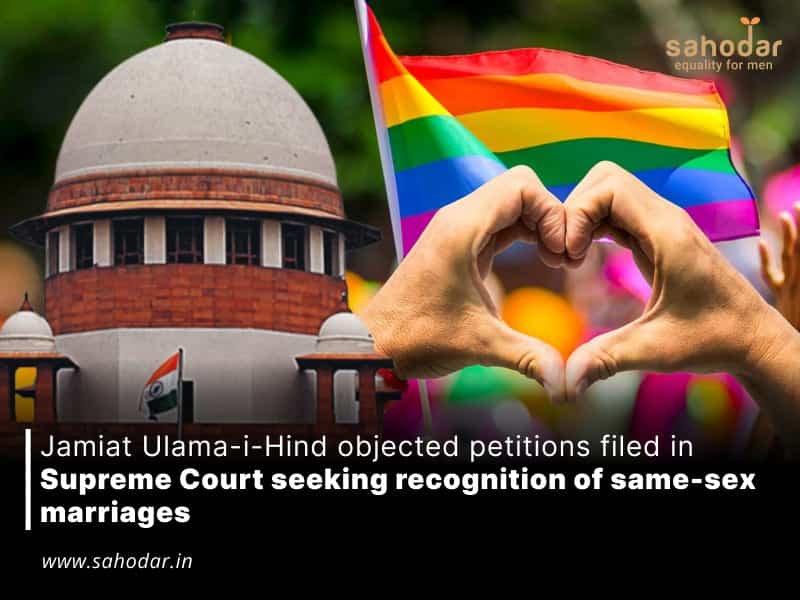Maulana Mahmood Madani, representing Jamiat Ulama-i-Hind and a former Member of Parliament, has requested to intervene in the ongoing case regarding the legal recognition of same-sex marriages in India. Jamiat Ulama-i-Hind has expressed its opposition to the petitions seeking to include same-sex marriages in the current legal framework, arguing that marriage between individuals of opposite sexes is a fundamental aspect of India’s legal system.
Jamiat Ulama-i-Hind’s intervention application contends that marriage is not merely a legal recognition of any two individuals’ union, but rather a concept based on established societal norms that cannot be altered by changing value systems emerging from different worldviews. The application emphasizes that marriage between individuals of opposite sexes is a critical component of India’s legal framework, with numerous statutory provisions governing inheritance, succession, and tax liabilities. The concept of opposite-sex marriage, according to the application, is a fundamental aspect of the institution of marriage, leading to a range of associated rights.
According to the intervention application, the petitions seeking the recognition of same-sex marriages are undermining the stability of the institution of marriage by introducing a free-floating system that is same-sex marriage. The application argues that countries that have legalized same-sex marriages have achieved a certain level of social order in terms of education, literacy, and societal acceptance, and therefore, the concept of same-sex marriage cannot be introduced in India. Additionally, the application cites various religions to support its argument that same-sex marriage cannot be permitted. For instance, among Hindus, marriage is considered a religious sacrament in which a man and a woman are bound in a permanent relationship for physical, social, and spiritual purposes of dharma, procreation, and sexual pleasure, with the aim of spiritual advancement, and it is one of the sixteen sanskars.
Likewise, the application argues that Christianity and Islam have categorically prohibited homosexuality from their inception. It further notes that Islamic law and theology maintain a clear and firm principle of only two genders based on biology. The application asserts that the defining figures of the Western sexual liberation movements are mostly staunch atheists, and their worldview, which had a significant impact on sexual morality, should not be permitted to influence religiously governed personal laws of communities. The petitions regarding the legality of same-sex marriages are scheduled for final hearing and disposal before a Constitution Bench on 18 April 2023.
Source: https://www.livelaw.in/top-stories/supreme-court-same-sex-marriage-jamiat-ulama-i-hind-marriage-of-opposite-sexes-225337?from-login=723538

